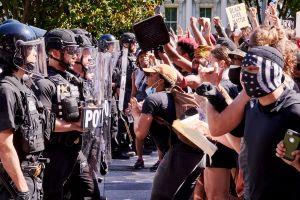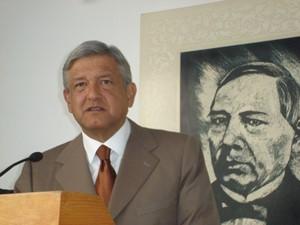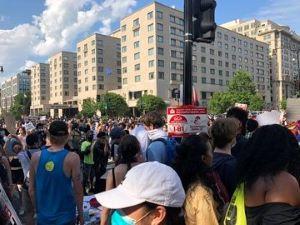Faced with a civic uprising sparked by the death of one black man too many at the hands of police, Congress is moving swiftly to respond.
An Iowa medical marijuana expansion bill has gone to the governor's desk, a Kansas medical marijuana bill died a quick death, and more.
A Democratic infrastructure bill includes language requiring legal marijuana states to consider impaired driving policies, Switzerland is set to move ahead with marijuana legalization pilot projects -- but only if it's organic -- and more.
Medical marijuana is moving in the Heartland, a New Jersey decriminalization bill gets filed, Colorado lawmakers are moving a police reform bill, and more.
A pair of Democratic House leaders is pressing Attorney General Barr on marijuana legalization and drug rescheduling, a House resolution linking the war on drugs and police brutality is picking up cosponsors at a very rapid clip, and more.
As a California psilocybin initiative bites the dust, a DC natural psychedelic initative gets a boost; the NBA gives up on recreational drug testing of its players, the Dutch move closer to a pilot program to supply legal marijuana to the country's cannabis cafes, and more.
Police accountability is the topic of the day in Congress and in Colorado, a Nebraska medical marijuana initiative campaign is in a final sprint for signatures, and more.
South Dakota marijuana activists launch their election campaign this week, Nevada's governor proposed mass pardons for small time pot possession charges, Michigan's governor signs a roadside drug testing bill into law, and more.
With mass protests over the killing of George Floyd by Minneapolis police officer Derek Chauvin now morphing into demands to grapple with racism and to confront a police culture where brutality is all too common, and with the anguished words of Floyd's brother, Philonise Floyd, echoing through the capitol, congressional Democrats this week rolled out their first effort to address the national uprising, the Justice in Policing Act of 2020.

George Floyd's legacy is being created right now. (Prachatia/Creative Commons)
The most comprehensive attempt to reform policing ever, the act would, according to a
House Judiciary Committee press release:- Prohibit federal, state, and local law enforcement from racial, religious and discriminatory profiling, and mandates training on racial, religious, and discriminatory profiling for all law enforcement.
- Ban chokeholds, carotid holds and no-knock warrants at the federal level and limits the transfer of military-grade equipment to state and local law enforcement.
- Mandate the use of dashboard cameras and body cameras for federal offices and requires state and local law enforcement to use existing federal funds to ensure the use of police body cameras.
- Establish a National Police Misconduct Registry to prevent problematic officers who are fired or leave on agency from moving to another jurisdiction without any accountability.
- Amend federal criminal statute from "willfulness" to a "recklessness" standard to successfully identify and prosecute police misconduct.
- Reform qualified immunity so that individuals are not barred from recovering damages when police violate their constitutional rights.
- Establish public safety innovation grants for community-based organizations to create local commissions and task forces to help communities to re-imagine and develop concrete, just and equitable public safety approaches.
- Create law enforcement development and training programs to develop best practices and requires the creation of law enforcement accreditation standard recommendations based on President Obama's Task force on 21st Century policing.
- Require state and local law enforcement agencies to report use of force data, disaggregated by race, sex, disability, religion, age.
- Improve the use of pattern and practice investigations at the federal level by granting the Department of Justice Civil Rights Division subpoena power and creates a grant program for state attorneys general to develop authority to conduct independent investigations into problematic police departments.
- Establish a Department of Justice task force to coordinate the investigation, prosecution and enforcement efforts of federal, state and local governments in cases related to law enforcement misconduct.
"We have heard the terrifying words 'I can't breathe' from George Floyd, Eric Garner, and the millions of Americans in the streets calling out for change," said House Judiciary Committee Chair Jerrold Nadler (D-NY). "For every incident of excessive force that makes headlines, the ugly truth is that there are countless others that we never hear about. This is a systemic problem that requires a comprehensive solution."

Protesters demanding police accountability at the White House. (Geoff Livingston/Creative Commons)
"What we are witnessing is the birth of a new movement in our country with thousands coming together in every state marching to demand a change that ends police brutality, holds police officers accountable, and calls for transparency,"
said Congressional Black Caucus Chair Karen Bass (D-CA). Passage of the act would "establish a bold transformative vision of policing in America," she added. "Never again should the world be subjected to witnessing what we saw on the streets in Minnesota with George Floyd."
But that "bold transformative vision" doesn't directly address one of the main drivers of fraught interactions between law enforcement and the citizenry, especially in minority communities. Police enforcing drug prohibition have arrested more than a million people a year every year since the late 1980s, with the number peaking at nearly two million in 2007 and finally declining to just under a million in 2018. Around 90% of those arrests are for simple drug possession, and around half of them are for simple marijuana possession.
The bill does call for federally banning no-knock raids -- perhaps a better term would be home invasion raids -- like the one in which Louisville police burst through the door of Breonna Taylor's home and riddled the 26-year-old black EMT's body with bullets after her boyfriend opened fire on the intruders coming through the door. Her death helped fuel the rage in Louisville and across the land. Drug law enforcement is the primary reason for federal no-knock raids.
A summary of the bill provided by the House Judiciary Committee notes that blacks are 2 ½ times more likely to be busted for possessing drugs despite using them at the same rate as whites and that they are 3.6 times more likely to be busted for selling drugs even though whites are more likely to do so, but does so only to call for an end to racial and religious profiling. Drug decriminalization, on the other hand, would radically reduce opportunities for discriminatory policing by radically reducing the number of people of all colors subject to being arrested for their choice of substances.
In a statement on the bill, the Drug Policy Alliance said it was "grateful" that the congressional leadership had filed the legislation, but that it does not go nearly far enough.
"[T]his bill fails to fully address issues like police militarization and the use of quick-knock warrants, policing practices that are disproportionately used against people of color in drug investigations," said Maritza Perez, director of DPA's Office of National Affairs. "While the bill places restrictions on programs that facilitate the transfer of military equipment to local police departments, it does not outright put an end to such programs. And while this bill prohibits no-knock warrants for drug cases, it does not outlaw quick-knock warrants which can be just as deadly. Moreover, the bill continues to fund police departments and the war on drugs, rather than shift resources to education, housing, harm reduction services, and other infrastructure that strengthens communities and increases public safety."
The bill needs to be toughened, DPA said, and offered to "work with Congress to improve and strengthen" it.
The American Civil Liberties Union (ACLU) was also ambivalent, with a press release lauding the bill's provisions banning choke-holds, limiting use of force, and prohibiting racial and religious profiling, but also arguing that it doesn't go far enough in reining in law enforcement.
"The bill introduced today takes significant steps to protect people and ensure accountability against police violence. But the legislation also provides hundreds of millions more to law enforcement, and for the ACLU, that's a nonstarter," said senior ACLU legislative counsel Kanya Bennett.
"While many of the reforms in this bill are laudable and vital, more must be done to change the role of police in our society fundamentally," Bennett continued. "There can be no more Band-Aid or temporary fixes when it comes to policing, which is why we are calling for divestment from law enforcement agencies and reinvestment into the black and brown communities that have been harmed by over policing and mass incarceration. The role of police has to be smaller, more circumscribed, and less funded with taxpayer dollars."

"I Can't Breathe." George Floyd protest in Houston. (2C2K Photography/Creative Commons)
Still, the bill has the support of a broad coalition of civil rights organization, including the NAACP, the National Urban League, the Leadership Council on Civil and Human Rights, and the National African American Clergy Network, among others.
"The National African American Clergy Network supports the Justice in Policing Bill. It affirms sacred scripture that everyone is created in the image of God and deserves to be protected by police sworn to value and safeguard all lives. Failure by police to uphold this sacred trust with Black Americans lives, requires systemic changes in policing nationwide," said Dr. Barbara Williams-Skinner, Dr. Otis Moss, Jr., and Dr. T. DeWitt Smith, Jr., co-convenors of the network.
The Justice in Policing Act will move swiftly toward passage in the House but faces much bumpier prospects in the Republican-controlled Senate. While President Trump has been advocating military crackdowns on protesters, circulating conspiracy theories about senior antifa terrorists and offering himself up as "your law and order president," GOP senators led by Tim Scott (R-SC) -- the party's only black senator -- are working to craft their own version of a police reform bill. As of now, while it acknowledges the need for police reform, which is a significant step for Republicans, it looks to be an even more watered down version of the Democrat's bill.
The pressure from the streets on Congress to get something done so far shows no sign of letting up. Whether the legislative body can actually come to grips with this crisis of confidence in government and policing remains to be seen. But it's already had a very salutary taste of what could be in store if it doesn't.
back to top
An Iowa medical marijuana expansion bill has gone to the governor's desk, a Kansas medical marijuana bill died a quick death, and more.
IowaIowa Senate Votes to Expand Medical Marijuana Program. The state Senate last Wednesday voted 32-17 to expand the state's medical marijuana program by increasing the amount of medical marijuana products patients can purchase to up to 25 grams of THC every 90 days. The bill now goes to the House.
Iowa Medical Marijuana Expansion Bill Heads to Governor's Desk. The state Senate has given final approval to a medical marijuana expansion bill, HF-2589, which adds autism and PTSD to the list of qualifying conditions and limits patients to 4.5 grams of THC over a 90-day period. The bill now goes to the desk of Gov. Kim Reynolds (R).
Kansas
Kansas Lawmakers File Medical Marijuana Bill. Nine House members have cosponsored House Bill 2017, which would set up a system of state-regulated medical marijuana cultivation, distribution, and sales. The bill would cap allowable amounts at four ounces, the equivalent of a 30-day supply. The bill does not specify which diseases or conditions would be included.
Kansas Medical Marijuana Bill Dies as Special Session Ends. House Bill 2017, which would have set up a system of state-regulated medical marijuana cultivation, distribution, and sales, has died as a special short session ended without it moving in the Republican-led legislature. It will be next January before the legislature meets again, so the issue is effectively dead for the rest of this year.
Nebraska
Nebraska Medical Marijuana Initiative Campaign Still Seeking Signatures. Backers of a medical marijuana initiative say they have some 60,000 valid voter signatures, but that's only half the total they need to qualify for the ballot. Nearly 50,000 of those signatures were gathered before lockdowns imposed because of the coronavirus, which brought signature-gathering to a near halt for months. Now, the campaign has less than a month to gather another 60,000 valid voter signatures.
back to top
A Democratic infrastructure bill includes language requiring legal marijuana states to consider impaired driving policies, Switzerland is set to move ahead with marijuana legalization pilot projects -- but only if it's organic -- and more.

Filipino President Duterte's drug war is again drawing criticism from the UN. (Creative Commons)
House Democrat Committee Leader Files Bill to Require Legal Marijuana States to Consider Impaired Driving Policies. Rep. Peter DeFazio (D-OR), chairman of the House Transportation and Infrastructure Committee, filed an infrastructure bill Wednesday that includes language requiring legal marijuana states to consider programs to curb marijuana-impaired driving and to educate the public about the dangers. The bill does not apply to states that haven't legalized medical or recreational marijuana. The bill is cosponsored by several subcommittee chairs on the panel. It's called the INVEST in America Act.
New Mexico Primary Voters Remove Anti-Marijuana Legalization Lawmakers. In state primary elections Tuesday, voters in at least four state Senate districts have replaced conservative Democrats who opposed legalization with progressive challengers who support it. This makes the prospects for legalization next year even greater. Gov. Michelle Lujan Grisham (D) supports the move.
Medical Marijuana
Iowa Senate Votes to Expand Medical Marijuana Program. The state Senate Wednesday voted 32-17 to expand the state's medical marijuana program by increasing the amount of medical marijuana products patients can purchase to up to 25 grams of THC every 90 days. The bill now goes to the House.
International
UN Says "Near Impunity" for Drug War Killings in the Philippines. In a report released Thursday, the UN Office of the High Commissioner on Human Rights said that tens of thousands of people had been killed in President Rodrigo Duterte's bloody war on drug users and sellers amid "near impunity" for police and the incitement of violence by top officials. The report said that rhetoric may have been interpreted as "permission to kill." Michelle Bachelet, UN High Commissioner for Human Rights, called for independent investigations into the killings and said her office was ready to help credible domestic Philippine or international efforts to establish accountability.
Switzerland Approves Legal Marijuana Pilot Programs -- But Only If It's Organic. The National Council has approved a plan to start marijuana legalization pilot programs, but the government says it must be organic and grown locally. Programs will be carried out in large cities such as Basel, Bern, Biel, Geneva, and Zurich. "The models must be tested before starting the debate on whether or not to liberalize cannabis," said Pierre-Yves Maillard (Social Democrats), a spokesperson for the responsible committee. Only people who currently use marijuana and prove it via a hair sample will be able to participate.
back to top
Medical marijuana is moving in the Heartland, a New Jersey decriminalization bill gets filed, Colorado lawmakers are moving a police reform bill, and more.

It's looking like the Garden State could see both marijuana decriminalization and legalization this year. (Creative Commons)
New Jersey Decriminalization Bill Filed. Senate Democrats have filed Senate Bill 2535, which would decriminalize the possession and distribution of one pound or less of marijuana. A first offense would earn a written warning, while subsequent offenses would garner a $25 fine. The bill sponsors are Sens. Teresa Ruiz (D-Newark), Sandra Cunningham (D-Jersey City) and Ron Rice (D-Newark).
Medical Marijuana
Iowa Medical Marijuana Expansion Bill Heads to Governor's Desk. The state Senate has given final approval to a medical marijuana expansion bill, HF-2589, which adds autism and PTSD to the list of qualifying conditions and limits patients to 4.5 grams of THC over a 90-day period. The bill now goes to the desk of Gov. Kim Reynolds (R).
Kansas Lawmakers File Medical Marijuana Bill. Nine House members have cosponsored House Bill 2017, which would set up a system of state-regulated medical marijuana cultivation, distribution, and sales. The bill would cap allowable amounts at four ounces, the equivalent of a 30-day supply. The bill does not specify which diseases or conditions would be included.
Law Enforcement
Feds Assert (With No Evidence) Force Against George Floyd Protestors Was Necessary Because of Drug Traffickers. US Customs and Border Protection claimed in a memo Wednesday that the supposed presence of "drug trafficking organizations" at protests after the killing of George Floyd by Minneapolis police justified the use of "escalated force" at demonstrations. It provided no evidence to support the claim beyond asserting that "due to nefarious actors and drug trafficking organizations using these protests as façades, there have been incidents where law enforcement (LE) officials have needed to respond with nonlethal and escalated force -- incidents including the use of pepper spray, riot shields, and rubber bullets." The claim came less than 48 hours after the Justice Department okayed letting the DEA act as federal law enforcement at the protests, even though it noted that "the federal crimes being committed in the wake of Mr. Floyd's death are largely not drug-related."
Colorado Police Reform Bill Filed. The state Senate president and all Senate Democrats are supporting Senate Bill 20-217, which was introduced this week in the wake of the George Floyd protests. The bill passed out of the Senate State Veterans and Military Affairs Committee Thursday and is likely to get a Senate floor vote either Saturday or early next week. The bill is an effort to bring transparency, accountability and better oversight for law enforcement who abuse their power. It would mandate the use of body camerasby July 2021, with failure to record creating a rebuttable presumption of officer misconduct. It also prohibits the use of chokeholds by police and requires public reporting on policing. Failure to record creates a rebuttable presumption of officer misconduct. It would also rein in deadly police shootings and block the rehiring of bad cops.
International
Australia's Melbourne to Get Second Safe Injection Site. The Victoria state government is now planning a second safe injection site in Melbourne after a report showed demand had surged at the North Richmond safe injection site. Premier Daniel Andrews made the announcement today following a two-year trial of the medically supervised North Richmond site. Andrews said he was "absolutely convinced" the second facility would save lives. "There is a need for us to do more to save lives and to change lives not just in North Richmond, but according to our expert panel in the City of Melbourne as well," he said.
Bermuda Government Releases Draft Marijuana Legalization Bill for Public Feedback. The Bermuda government has released a draft marijuana legalization bill under which adults 21 and over could purchase and possess up to seven grams of marijuana. The bill envisions a system of licensed retailers, and a prior marijuana conviction would be no bar to participating in the industry.
back to top
A pair of Democratic House leaders is pressing Attorney General Barr on marijuana legalization and drug rescheduling, a House resolution linking the war on drugs and police brutality is picking up cosponsors at a very rapid clip, and more.

Mexican President Lopez Obrador is ready to push for drug decriminalization. (Creative Commons)
Arkansas Marijuana Legalization Initiative Campaign Can Do Electronic Signature-Gathering, But the Clock is Ticking. Arkansas for Cannabis Reform, the group behind a marijuana legalization initiative, has won a victory in the state Supreme Court as the court has ruled it can collect signatures electronically. The group needs 89,000 valid voter signatures by July 3 to qualify for the ballot, but only has 23,000 raw signatures right now.
Drug Policy
House Lawmakers Press Attorney General Barr on Drug Rescheduling, Marijuana Legalization. House Judiciary Committee Chairman Jerrold Nadler (D-NY) and Rep. Karen Bass (D-CA), head of the Congressional Black Caucus, sent a letter last Friday to Attorney General Bob Barr criticizing a Justice Department move last week to allow the DEA to help police mass protests over the police killing of George Floyd. The two lawmakers also criticized the Trump administration's "counterproductive focus on non-violent drug offenses is a plain reminder that the DEA is out of touch with the Nation's shift from the drug war model to policies of substance abuse treatment, rescheduling drugs, legalizing marijuana, and reducing harsh drug sentences."
Law Enforcement
House Resolution That Cites War on Drugs as Factor in Police Brutality Rapidly Gaining Cosponsors. A House resolution citing the war on drugs as a major factor in police brutality was filed with 12 cosponsors little more than a week ago. By the end of last week, it was up to 50 cosponsors; now, as nationwide protests over the police killing of George Floyd morph into calls for structural reform, the number of cosponsors has more than tripled to 160.
International
Mexico President Releases Plan to Decriminalize Drugs, Push US to Do Same. President Andres Manuel Lopez Obrador (AMLO) last week released a new plan that calls for radical reforms on the country's drug laws and negotiations with the US to do the same. The plan calls for drug decriminalization and moving funding from waging the drug war to providing for drug treatment programs. "The 'war on drugs' has escalated the public health problem posed by currently banned substances to a public safety crisis," the policy proposal, which came as part of AMLO's National Development Plan for 2019-2024, read. Mexico's current "prohibitionist strategy is unsustainable," it argued. Ending prohibition is "the only real possibility" to address the problem. "This should be pursued in a negotiated manner, both in the bilateral relationship with the United States and in the multilateral sphere, within the UN," it explained.
back to top
As a California psilocybin initiative bites the dust, a DC natural psychedelic initative gets a boost; the NBA gives up on recreational drug testing of its players, the Dutch move closer to a pilot program to supply legal marijuana to the country's cannabis cafes, and more.
caption:true]
Marijuana PolicyMontana Democratic Party Endorses Marijuana Legalization. The state Democratic Party has formally endorsed marijuana legalization, making it part of its platform. The party supports the "removal of Marijuana from Schedule 1 of the Federal Controlled Substances Act," one plank states. The party also endorsed adding language to the state constitution to "establish the legal age for purchasing, consuming, or possessing marijuana at 21 years of age or older." It also calls for "addressing substance abuse as a public health issue, rather than a criminal issue," among other reform policies. The move comes as a pair of marijuana legalization initiatives sponsored by New Approach Montana seek to gather signatures to qualify for the November ballot.
Medical Marijuana
Kansas Medical Marijuana Bill Dies as Special Session Ends. House Bill 2017, which would have set up a system of state-regulated medical marijuana cultivation, distribution, and sales, has died as a special short session ended without it moving in the Republican-led legislature. It will be next January before the legislature meets again, so the issue is effectively dead for the rest of this year.
Drug Testing
NBA Will Not Test for Recreational Drugs When Season Resumes. The National Basketball Association has not been testing players for recreational drugs during the coronavirus-inspired suspension of the 2019-2020 season, and the league will reportedly continue that approach once play resumes. The league will still test players for performance enhancing drugs, though.
Psychedelics
California Psilocybin Decriminalization Initiative Officially Dead for This Year. The state secretary of state's office announced Monday that the California Psilocbyin Decriminalization Initiative had failed to qualify for the November ballot. Like other initiative campaigns, this campaign struggled with signature-gathering as social distancing measures and lockdowns took hold in March. Look out for 2022.
Washington, DC, Natural Psychedelic Lowest Priority Initiative Campaign Gets Signature Boost Amidst Mass Protests. The measure, I-81, had been struggling to gather signatures during the coronavirus lockdown, but has received an unexpected boost as the streets of the city fill with demonstrators protesting police brutality. Organizers said they had added some 5,000 new signatures during the street protests. They have until July 6 to come up with 30,000 valid voter signatures to qualify for the November ballot. The measure would not legalize or decriminalize natural psychedelics but would make them the city's lowest law enforcement priorities.
International
Dutch Government Announces Applications for Regulated Marijuana Grows to Open Next Month. The Justice Ministry announced Tuesday that marijuana growers who wish to take part in a pilot program to grow regulated marijuana for the country's famous cannabis cafes can sign up to apply beginning July 1. Up to 10 growers will be licensed to supply the cafes in a bid to address the country's lingering "back door problem," where cafes are allowed to sell marijuana products, but there is no legal source of supply. That has only strengthened black market producers.
Israel Coalition Government Will Push for Marijuana Legalization Reforms. The Likud/Blue and White coalition government says it will push legislation in the Knesset "to arrange the issue of decriminalization and legalization [of marijuana] via a responsible model." In the same statement, the government said both parties have also decided to push for reforms to medical marijuana to increase ease of access for patients and make it easier for growers to get licenses.
back to top
Police accountability is the topic of the day in Congress and in Colorado, a Nebraska medical marijuana initiative campaign is in a final sprint for signatures, and more.

Newly hired or returning truck drivers catch a break from drug testing during the coronavirus disruption. (Creative Commons)
Nebraska Medical Marijuana Initiative Campaign Still Seeking Signatures. Backers of a medical marijuana initiative say they have some 60,000 valid voter signatures, but that's only half the total they need to qualify for the ballot. Nearly 50,000 of those signatures were gathered before lockdowns imposed because of the coronavirus, which brought signature-gathering to a near halt for months. Now, the campaign has less than a month to gather another 60,000 valid voter signatures.
Criminal Justice
Congressional Democrats Introduce Justice in Policing Act. In response to the outrage sweeping the nation over police killings of black Americans, on Tuesday House Democratic leaders introduced the Justice in Policing Act, the first-ever comprehensive approach to hold police accountable, change the culture of law enforcement and build trust between law enforcement and our communities. The bill bars discriminatory profiling, bans chokeholds and no-knock drug raids at the federal level, mandates the use of bodycams by federal police, and establishes a National Police Misconduct Registry, among other provisions. Look for a Chronicle feature article on the bill tomorrow.
Colorado Police Accountability Bill Passes Senate. The state Senate on Tuesday approved SB20-217, the Law Enforcement Accountability and Integrity Act, with only one dissenting vote. The bill creates a police officer duty to intervene in the presence of unlawful police use of force, outlaws chokeholds, protects protesters from police violence, and removes the shield of immunity from police officers acting unlawful, among other provisions. The bill now moves to the House, where it had a hearing in the House Finance Committee Wednesday.
Drug Testing
Federal Trucking Regulators Extend Waiver on Pre-Employment Drug Testing. The Federal Motor Carrier Safety Administration has extended through September 30 a waiver on pre-employment drug testing requirements for truck drivers. The agency said that layoffs in the industry because of the coronavirus pandemic had reduced the pool of employees for random drug testing, the requirement for drug testing would impose burdens on trucking companies "at the very time they are attempting to return to expanded levels of operation."
back to top
South Dakota marijuana activists launch their election campaign this week, Nevada's governor proposes mass pardons for small time pot possession charges, Michigan's governor signs a roadside drug testing bill into law, and more.

Rep. Earl Blumenauer (D-OR) is calling for drug decriminalization as part of a police accountability plan. (Creative Commons)
Nevada Governor Proposes Pardons for Minor Marijuana Convictions. Gov. Steve Sisolak (D) announced Thursday that he will propose a plan to pardon tens of thousands of people convicted on minor marijuana possession charges before the state legalized the drug in 2017. "The people of Nevada have decided that possession of small amounts of marijuana is not a crime," the governor said. "If approved, this resolution will clear the slate for thousands of people who bear the stigma of a conviction for actions that have now been decriminalized."
South Dakota Marijuana Advocates Kick Off Campaign for Both Legalization and Medical Marijuana Initiatives. With both a marijuana legalization initiative, Constitutional Amendment A, and a medical marijuana initiative, Initiated Measure 26, already qualified for the ballot, marijuana activists kicked off their election season campaign to get them both approved in November. If both were approved by voters, the state would become the first to legalize both recreational and medical marijuana on the same day.
Drug Policy
Oregon US Congressman Calls for Drug Decriminalization as Part of Policing Reform Plan. Rep. Earl Blumenauer (D-OR) released a police accountability plan on Tuesday that includes proposals to legalize marijuana and decriminalize other drugs to reduce over-policing of communities of color. "Reducing police interactions by using non-law enforcement to deal with minor crimes and activities, and repealing punitive drug laws could reduce the criminalization and over-policing of communities of color," the plan states. "We need to rethink the way police are used and encourage alternative policing models that address institutional racism as they are being created." Such a plan would include repealing "policies that incentivize over-policing of communities of color, including the prohibition of cannabis and the decriminalization of other drugs."
Drug Testing
Michigan Governor Signs Roadside Drug Testing Pilot Program Bill. Gov. Gretchen Whitmer on Thursday signed into law Senate Bill 718, which establishes a statewide pilot program for roadside drug testing for drivers. The test will use saliva to detect the presence of amphetamines, benzodiazepines, cannabis (delta 9 THC), cocaine, methamphetamines and opiates.
International
Colombia's Coca-Growing Cauca Department Wracked with Violence. Armed groups fighting over control over the coca and cocaine trade have been engaging in targeted assassinations and gun battles in southwestern Cauca department. Dissident members of the FARC, which laid down its arms as part of a 2016 peace accord, have been going after their former comrades, while different factions of the National Liberation Army (ELN) clashed with each other. Meanwhile, the targeted killings of social leaders and activists have also continued, with more than 40 killed in the department so far this year.
Mexico's Guanajuato State Hammered by Weekend of Cartel Violence. Nearly three dozen people were killed in a spate of drug gang killings in the central industrial state of Guanajuato over the weekend. In the deadliest single incident, a group of gunmen attacked a drug rehabilitation center in Irapauto and killed 10 people. The violence is linked to a bloody turf war between the Jalisco Cartel and the local Santa Rosa de Lima gang.
back to top









